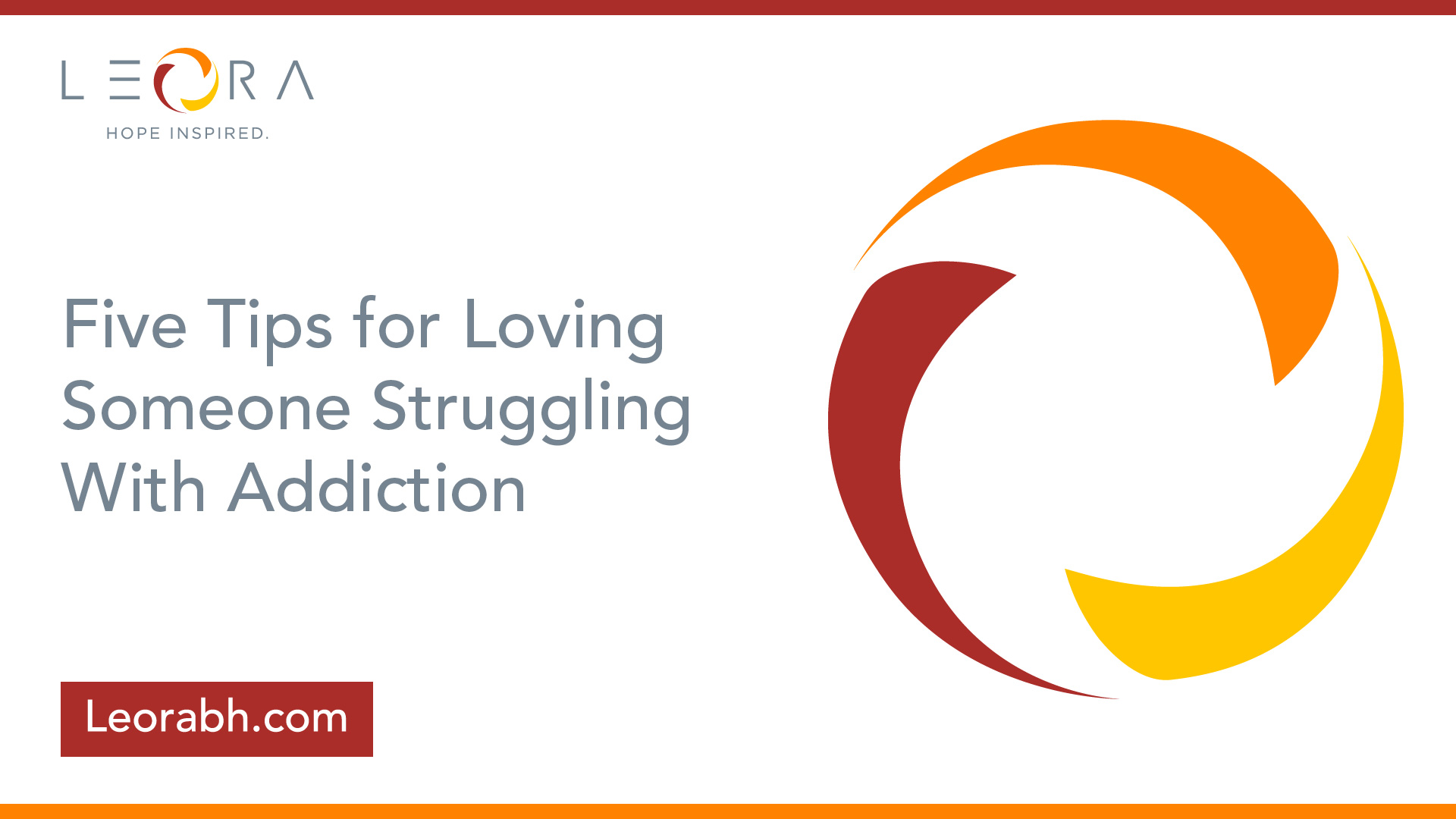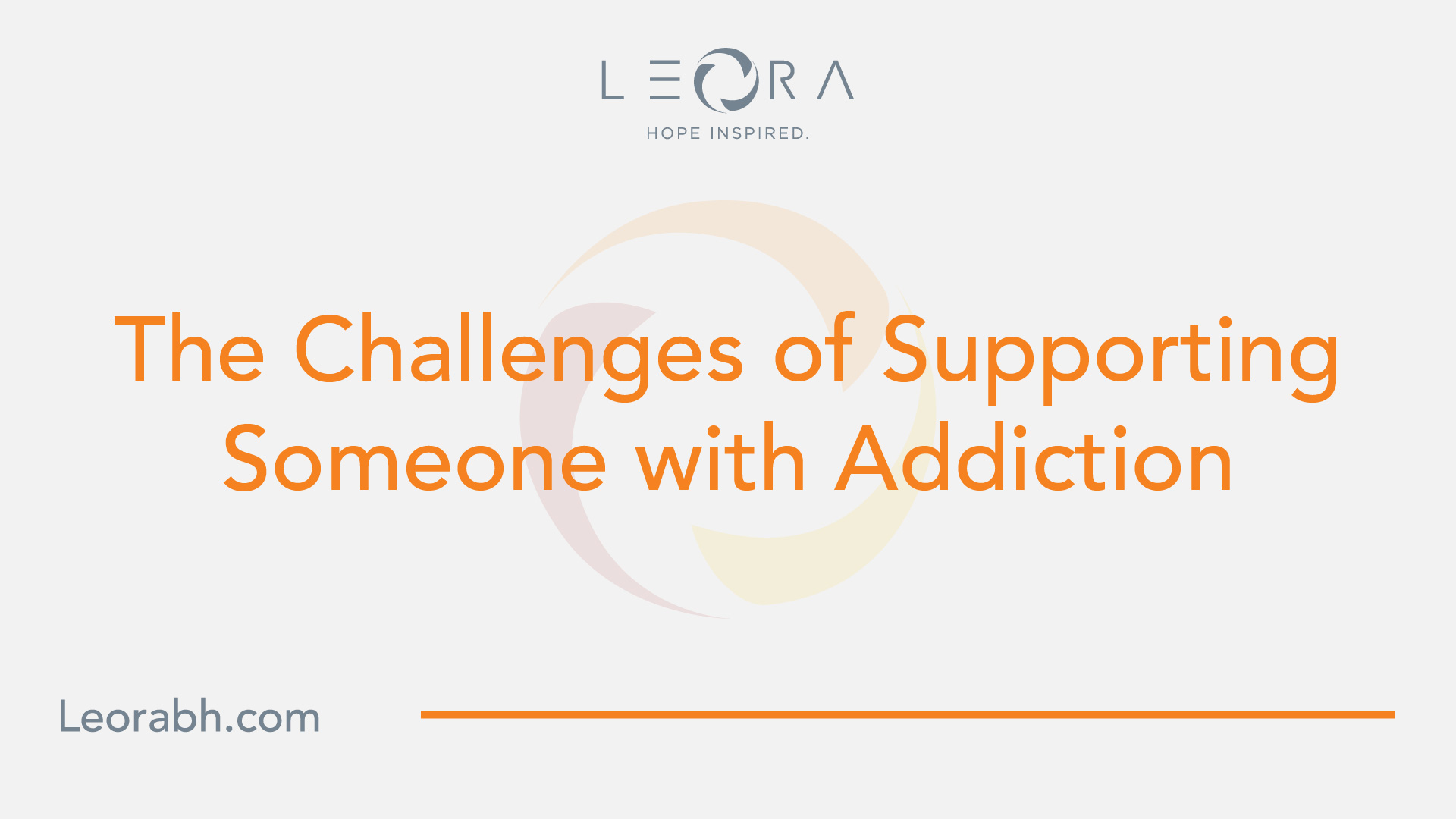Five Tips for Loving Someone Struggling With Addiction
Empower your loved one struggling with addiction with these five powerful tips. Support, boundaries, and self-care await!
Supporting a Loved One with Addiction
When someone we care about is struggling with addiction, it can be a challenging and emotional journey for both the individual and their loved ones. In order to provide the best support possible, it is important to understand addiction and the importance of education.

Understanding Addiction
Educating yourself about addiction is the first step in supporting a loved one who is struggling. Addiction is a complex disease that affects the brain and behavior. It is characterized by compulsive drug seeking and use, despite the harmful consequences it may have on the individual's life. Drugs and alcohol can rewire the brain, leading to dependency and a distorted value system that supports ongoing substance use. It is crucial to remember that addiction is a disease.
By taking the time to understand addiction, you can gain insight into the challenges your loved one is facing. This understanding can help you approach their struggles with empathy and compassion, rather than judgment.
Importance of Education
Education is key to providing effective support to someone struggling with addiction. By educating yourself about addiction and its effects, you can better understand the journey of recovery and the challenges your loved one may face along the way. This knowledge will enable you to provide informed support and make more informed decisions about the best ways to help.
Educating yourself can involve learning about the signs and symptoms of addiction, the impact of substance use disorders on individuals and families, and the available treatment options. Resources such as helplines, websites, and support groups can provide valuable information and guidance [2].
By becoming knowledgeable about addiction, you can also help reduce the stigma surrounding it. This can contribute to creating a more supportive and understanding environment for your loved one.
Remember, supporting someone with addiction is not an easy task, and its important to take care of yourself throughout the process. In the sections that follow, we will explore tips for supporting your loved one, establishing healthy boundaries, and engaging in self-care to ensure your own well-being.

Tips for Loving Someone Struggling with Addiction
Supporting a loved one who is struggling with addiction can be challenging, but it's important to remember that your love and support can make a significant difference in their recovery journey. Here are five empowering tips to help you navigate this difficult situation:
Active Listening and Empathy
When your loved one opens up about their struggles with addiction, it's crucial to give them your full attention and actively listen to what they have to say. Show them respect and understanding by being fully present in the conversation. This can make them feel supported and valued, knowing that you are there to listen and empathize with their experiences. (Verywell Mind)
Non-Judgmental Communication
Avoid using judgmental statements or confrontational language that may push the individual struggling with addiction away or make them defensive. Instead, express empathy and compassion when communicating with them. Let them know that you care about their well-being and are there to support them on their recovery journey. Creating a non-judgmental environment can foster trust and open communication, making it easier for your loved one to seek help and share their challenges
Setting Boundaries
Setting clear boundaries is essential when supporting someone with addiction. Establishing boundaries helps protect yourself and maintain a healthy relationship while showing love and support to your loved one. Clearly communicate your expectations and limits, and be prepared to follow through with consequences when necessary. This can help create a sense of structure and accountability while still providing a supportive and loving environment.
Encouraging Professional Help
While your support is valuable, encouraging your loved one to seek professional help is crucial for their recovery. Offer to assist them in finding resources, treatment options, and support groups that can aid in their journey towards overcoming addiction. Be their advocate and provide guidance and encouragement, but remember that the decision to seek help ultimately lies with them. By actively supporting their efforts to seek professional assistance, you can contribute to their overall recovery process.
Practicing Self-Care
Supporting someone with addiction can take a toll on your own mental and emotional well-being. It's important to prioritize self-care and seek support for yourself. Take the time to engage in activities that bring you joy and help you relax. Consider seeking therapy or counseling to help you navigate the challenges you may face as a caregiver. Support groups and helplines can also provide a valuable network of individuals who understand your experiences. Remember, taking care of yourself allows you to be more effective in supporting your loved one.
By following these tips, you can provide the love and support your loved one needs as they navigate their journey towards recovery. Remember, addiction is a complex issue, and professional help may be required. Your role as a supportive and caring individual can make a positive impact on their path to healing.

The Challenges of Supporting Someone with Addiction
Supporting someone with addiction can be a challenging and emotionally taxing experience. It is essential to understand the difficulties involved to provide effective support. This section explores some of the challenges faced when supporting someone with addiction: the high rates of substance use disorders, the impact on caregivers' mental health, and understanding addiction as a disease.
High Rates of Substance Use Disorders
Substance use disorders (SUDs) are prevalent in society, affecting millions of individuals. According to a national survey in 2019, approximately 20.4 million Americans experienced a substance use disorder in the previous year. Shockingly, only about one tenth of individuals with an SUD received the treatment they needed [1].
These statistics highlight the magnitude of the problem and the importance of providing support to individuals struggling with addiction. By understanding the prevalence of SUDs, we can approach the issue with empathy and a commitment to helping those in need.
Impact on Caregivers' Mental Health
Supporting someone with addiction can take a toll on the mental health of caregivers. The stress, worry, and emotional strain associated with witnessing a loved one's struggle can have significant consequences. Caregivers often neglect their own well-being, leading to a lack of self-care, increased illness, and struggles with depression and anxiety.
To effectively support someone with addiction, it's crucial for caregivers to prioritize their own mental health. By seeking support for themselves, practicing self-care, and setting boundaries, caregivers can maintain their well-being while providing valuable assistance to their loved ones.
Understanding Addiction as a Disease
Addiction is a complex disease that affects the brain's reward system and impulse control. It is not a matter of willpower or a moral failing. Drugs and alcohol can rewire the brain, leading to dependency and a distorted value system that supports ongoing substance use. It's crucial to remember that addiction is a disease and to try to understand how substance misuse became a routine part of the individual's life [1].
By recognizing addiction as a disease, we can approach individuals struggling with empathy and compassion. It is important to provide emotional support, promote understanding, and avoid stigmatizing language or behavior. Understanding addiction as a disease helps break down barriers and encourages individuals to seek and accept the necessary help and treatment.
Supporting someone with addiction requires acknowledging the challenges involved and approaching the situation with empathy and understanding. By recognizing the high rates of substance use disorders, prioritizing caregivers' mental health, and understanding addiction as a disease, we can provide the necessary support to empower individuals on their journey to recovery.
The Role of Boundaries in Supporting Recovery
Establishing healthy boundaries is an essential aspect of supporting someone in their journey towards recovery from addiction. Boundaries can protect both the person struggling with addiction and their loved ones, establishing guidelines for behavior and consequences for overstepping them. Here are three key aspects to consider when it comes to boundaries in supporting recovery:
Establishing Healthy Boundaries
When supporting someone with addiction, it's important to establish clear and healthy boundaries. This involves setting limits on what behavior is acceptable and what is not. By defining these boundaries, you can create a safe and supportive environment for both yourself and your loved one.
Here are some strategies for establishing healthy boundaries:
- Clearly communicate your expectations and limits with your loved one. Let them know what behaviors are unacceptable and the consequences that may follow if those boundaries are crossed.
- Be consistent in enforcing the boundaries you have established. This helps to establish trust and accountability.
- Respect the boundaries of the person with addiction as well. It is crucial to strike a balance between setting boundaries and respecting their autonomy.
Avoiding Enabling Behaviors
Enabling behaviors can inadvertently hinder the recovery process. It is important to recognize and avoid behaviors that enable or support the addictive behaviors of your loved one. Enabling can take many forms, such as providing financial support, making excuses, or covering up the consequences of their actions.
To avoid enabling behaviors:
- Refrain from making excuses for their behavior or minimizing the impact of their addiction.
- Avoid providing financial assistance that may be used to support their addiction.
- Encourage personal responsibility and accountability for their actions.
Protecting Emotional Well-being
Supporting someone with addiction can take an emotional toll on caregivers. It is crucial to prioritize your emotional well-being and establish boundaries that protect your mental health. This may involve seeking support from professionals, setting aside time for self-care, and engaging in activities that bring you joy and relaxation.
Here are some ways to protect your emotional well-being:
- Seek therapy or counseling to process your emotions and gain support from a professional.
- Connect with support groups or helplines specifically designed for caregivers of individuals with addiction.
- Practice self-care activities that promote relaxation, stress reduction, and emotional well-being.
By establishing healthy boundaries, avoiding enabling behaviors, and prioritizing your emotional well-being, you can provide the necessary support while maintaining your own health and well-being. Remember, supporting someone with addiction is a challenging journey, and seeking support for yourself is equally important in navigating through it.
Educating Yourself about Addiction and Treatment
In order to effectively support a loved one struggling with addiction, it is crucial to gain knowledge and understanding about addiction and its treatment options. Educating yourself on these matters will enable you to provide informed support and be better equipped to assist your loved one on their journey to recovery.
Gaining Knowledge and Understanding
By educating yourself about addiction, you can develop a deeper understanding of its effects and challenges. This knowledge will help you empathize with your loved one's struggles and contribute to a more supportive environment. Understanding addiction as a disease, caused by the rewiring of the brain due to substance abuse, can help shift the perspective from blame to empathy [1].
It is essential to recognize that addiction is a complex issue that affects individuals physically, mentally, and emotionally. By gaining knowledge about the complexities of addiction, you can better comprehend the challenges your loved one is facing and the impact it may have on their life.
Available Resources for Support
There are numerous resources available to support individuals dealing with addiction and their loved ones. These resources can provide valuable information, guidance, and assistance throughout the recovery process.
Support groups and helplines offer a safe space for individuals to share their experiences, gain support from others facing similar challenges, and receive guidance from professionals. Connecting your loved one with these resources can help them feel understood, supported, and less alone [4].
Therapy and counseling are crucial components of addiction treatment. Encouraging your loved one to seek professional help can provide them with the necessary tools and coping strategies to overcome their addiction. Therapy sessions offer a confidential and non-judgmental environment for individuals to explore the underlying causes of their addiction and develop strategies for recovery.
As a caregiver or loved one, it is also important to seek support for yourself. Therapy and counseling can help you navigate the challenges and emotions that may arise while supporting someone with addiction. Support groups and helplines specifically designed for caregivers can provide guidance, understanding, and a sense of community [1].
Remember, educating yourself about addiction and the available resources not only benefits your loved one but also equips you with the knowledge and tools to provide effective support. By gaining understanding and connecting with appropriate resources, you can contribute to your loved one's recovery journey and foster an environment of empathy, understanding, and hope.
Seeking Support for Yourself
When supporting a loved one struggling with addiction, it's important to prioritize your own well-being. Caring for someone battling addiction can be overwhelming and emotionally draining, which is why seeking support for yourself is crucial. Here are three avenues for support: therapy and counseling, support groups and helplines, and practicing self-care.
Therapy and Counseling
Engaging in therapy or counseling can provide a safe space for you to express your emotions, gain insights, and develop coping strategies. A therapist or counselor can offer guidance and support as you navigate the challenges of supporting a loved one with addiction. They can help you process your own emotions, learn effective communication techniques, and develop healthy boundaries.
Therapy sessions can be conducted individually or as a family, depending on your specific needs. It's essential to find a therapist or counselor who specializes in addiction and understands the unique dynamics involved in supporting someone on their recovery journey.
Support Groups and Helplines
Support groups and helplines can be valuable resources for individuals supporting a loved one with addiction. These platforms provide a sense of community, allowing you to connect with others who are experiencing similar challenges. Sharing experiences, insights, and coping strategies with individuals who understand can be immensely comforting and empowering.
Support groups can be found locally or online, offering a range of formats such as in-person meetings, virtual gatherings, or moderated forums. Helplines, like the National Helpline for Substance Abuse and Mental Health Services, provide confidential support and information from trained professionals, ensuring you have access to assistance whenever you need it.
Self-Care for Caregivers
Prioritizing self-care is essential when supporting a loved one with addiction. Taking care of yourself allows you to maintain your own physical and emotional well-being, preventing burnout and enhancing your ability to provide effective support. By practicing self-care, you can build resilience, increase positive emotions, and develop better coping skills.
Engage in self-care practices such as eating well, getting adequate sleep, socializing with loved ones, and participating in regular exercise. These activities can help reduce stress and anxiety, improving your overall well-being. It's also important to set boundaries and practice self-compassion, allowing yourself time and space to recharge and heal.
By seeking support for yourself through therapy, support groups, and helplines, and prioritizing self-care practices, you can enhance your ability to support your loved one while maintaining your own well-being. Remember, taking care of yourself is not selfish but rather an essential part of providing effective and sustainable help to someone struggling with addiction.
References
Find Your Inner Light
Related Articles
Contact Us
Leora Behavioral Health offers a comprehensive addiction treatment programs to help you get your life back on track.
Our trained professionals will work with you to develop a personalized treatment plan that meets your unique needs. If you or someone you know is struggling with addiction, reach out to Leora Behavioral Health today.


.svg)





.svg)
.svg)
.svg)
.svg)